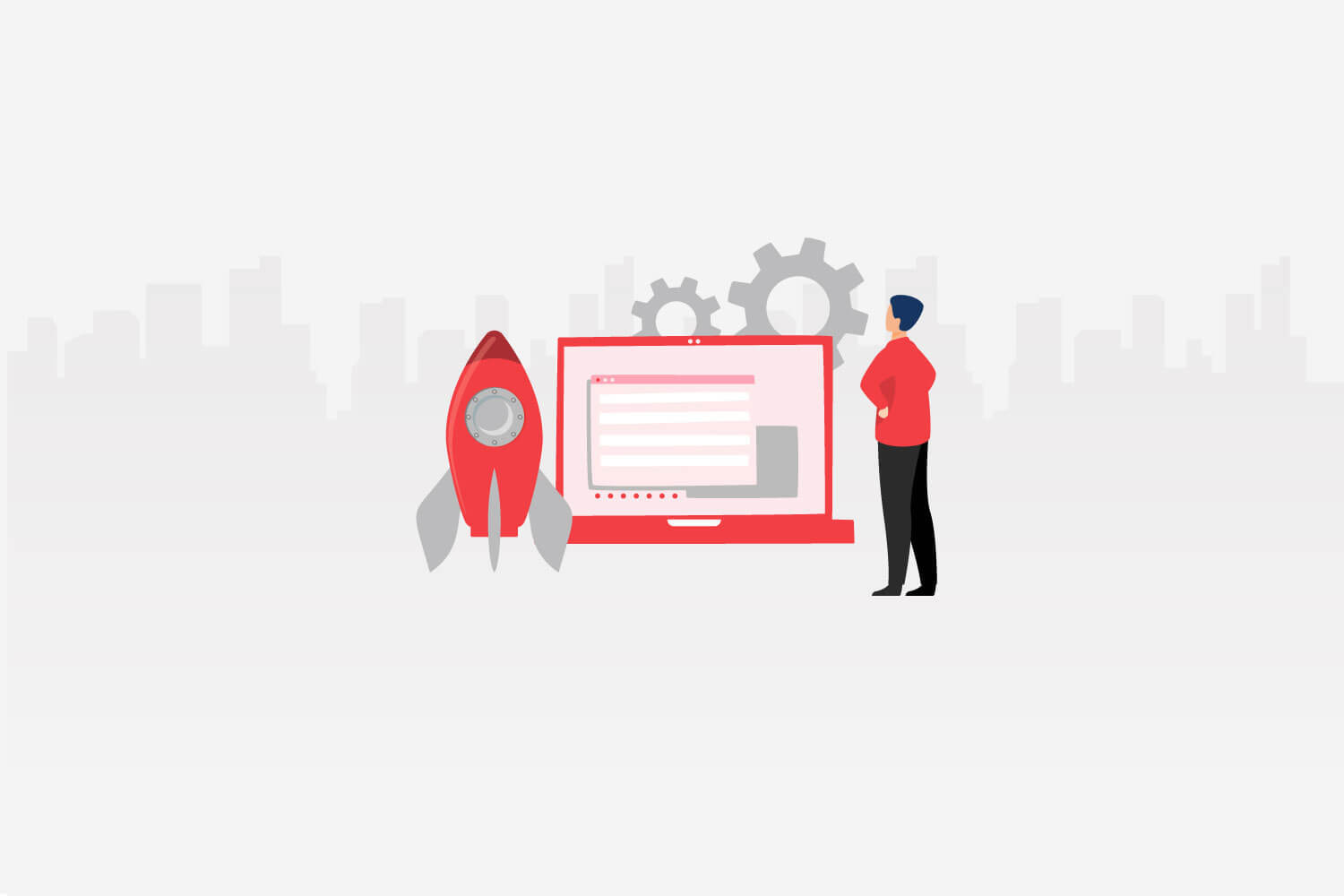Recruiting the right candidate for a job is no easy task. It requires a careful evaluation of skills, experience, and cultural fit. However, one often overlooked but highly valuable tool in the recruitment process is personality testing. Personality tests provide valuable insights into a candidate’s character, behavior, and work style, helping recruiters make more informed decisions.
In this long-form blog, we’ll explore the top 10 advantages of using personality tests in the hiring process, specifically tailored for recruiters.

1. Improved candidate selection
Improved candidate selection is a paramount benefit of integrating personality tests into the recruitment process. In today’s competitive job market, finding candidates who not only possess the necessary skills but also align with the company culture is imperative. Personality tests serve as a powerful tool to achieve this balance.
These assessments delve deep into a candidate’s personality traits, shedding light on their behavioral tendencies, communication style, work ethic, and more. This invaluable insight enables recruiters to make highly informed decisions about a candidate’s suitability for a specific role and their compatibility with the existing team dynamics.
By leveraging personality tests, recruiters can identify candidates whose personalities align seamlessly with the demands of the job and the ethos of the organization. This alignment is crucial for predicting not only a candidate’s technical competence but also their potential for long-term success and job satisfaction.
Personality tests help recruiters move beyond surface-level qualifications, allowing them to tap into the intangible qualities that make a candidate a perfect fit. This refined approach to candidate selection ultimately results in a more harmonious workplace, increased employee engagement, and improved overall organizational performance.
2. Enhanced predictive validity
Personality tests offer a substantial boost to the predictive validity of the hiring process, enhancing the recruiter’s ability to foresee a candidate’s future job performance with greater accuracy. These assessments are meticulously crafted to gauge specific personality traits and behaviors, thus providing recruiters with a scientifically-backed lens through which to assess candidates.
When integrated into the recruitment process alongside traditional methods like interviews and resume reviews, personality tests act as a complementary tool. They bring a unique dimension to candidate evaluation, enabling recruiters to make more well-rounded judgments. This holistic approach significantly augments the hiring process’s predictive validity, resulting in several compelling advantages.
First and foremost, personality tests help recruiters identify candidates who possess not only the requisite skills but also the behavioral attributes essential for excelling in the role. This comprehensive assessment minimizes the risk of hiring candidates whose personalities may clash with the job’s demands or the company’s culture, reducing turnover rates.
Furthermore, enhanced predictive validity means recruiters are more likely to make hires who not only perform well initially but also exhibit greater potential for long-term success within the organization. This can lead to higher employee retention rates, substantial cost savings, and a more stable and productive workforce.
personality tests serve as a crucial element in the recruiter’s toolkit, elevating the hiring process to a more sophisticated level of assessment. This ultimately translates into more successful, enduring hires and a positive impact on the organization’s overall performance and bottom line.
3. Reduction in turnover
High employee turnover is a recurring nightmare for organizations, inflicting significant costs and disruptions. The strategic implementation of personality tests in the hiring process emerges as a potent remedy to curbing turnover rates, benefiting both the organization’s financial health and its overall stability.
Personality tests serve as a powerful gatekeeper, allowing recruiters to select candidates whose personalities seamlessly align with the job’s requirements and the company’s culture. This alignment is key to fostering a sense of belonging and satisfaction among employees. When individuals feel comfortable in their roles and resonate with the organization’s values and culture, they are far more likely to stay with the company for the long term.
Reducing turnover not only saves an organization the considerable time and resources typically allocated to recruitment and training but also preserves institutional knowledge and promotes continuity. Lower turnover rates translate into a more experienced and skilled workforce, which can significantly enhance the organization’s efficiency and productivity.
Furthermore, a stable workforce contributes to a positive workplace environment, boosting morale and team cohesion. This, in turn, can lead to increased employee engagement, creativity, and loyalty, all of which are vital for an organization’s sustained success.
Personality tests act as a proactive measure against the costly repercussions of high turnover. By ensuring that candidates who genuinely fit the role and culture are selected, organizations can build a more stable, motivated, and high-performing workforce, ultimately driving long-term growth and prosperity.
4. Enhanced team dynamics
Personality tests go beyond individual assessment, playing a pivotal role in shaping and enhancing team dynamics within an organization. By evaluating a candidate’s personality in the context of the existing team’s dynamics, recruiters can foster more cohesive and harmonious workgroups, igniting a chain reaction of benefits that ripple through the organization.
Team cohesion and harmony are vital for any organization aiming to maximize productivity and efficiency. Personality tests enable recruiters to identify candidates whose personalities complement the existing team members. When team members share similar values, communication styles, and work preferences, they are more likely to collaborate effectively and build strong working relationships.
Enhanced team dynamics also promote open communication and mutual understanding among team members. Personality assessments can highlight potential sources of conflict or miscommunication, enabling organizations to proactively address and mitigate these issues. This results in smoother workflows, quicker problem-solving, and reduced workplace stress.
Ultimately, improved team dynamics translate into enhanced overall team performance. Teams that work well together are more innovative, creative, and motivated, which, in turn, leads to higher-quality output and better results for the organization as a whole. Additionally, the positive working environment created by well-aligned teams often contributes to higher employee satisfaction and retention rates.
Personality tests are a strategic tool for recruiters to optimize team dynamics. They help create workgroups that harmonize with each other, fostering collaboration, communication, and team performance that can drive organizational success to new heights.
5. Diversity and inclusion
Diversity and inclusion are essential pillars of modern organizations, and recruiters play a pivotal role in driving these principles forward. Personality tests serve as a valuable ally in the pursuit of diversity and inclusion, offering a systematic and objective approach to hiring decisions that mitigates the influence of unconscious bias.
Unconscious bias can unintentionally affect hiring decisions, leading to the exclusion of qualified candidates from underrepresented groups. Personality tests, however, provide recruiters with an impartial lens through which to evaluate candidates. These assessments focus on quantifiable personality traits and behaviors that are directly relevant to job performance, thereby reducing the potential for subjective judgments influenced by bias.
By relying on personality tests, recruiters can prioritize candidates based on their qualifications, skills, and personality traits that align with the job requirements. This promotes fair and equitable hiring practices, ensuring that all candidates have an equal opportunity to succeed.
Moreover, personality tests can help organizations identify candidates who bring diverse perspectives and approaches to problem-solving, ultimately enriching the workplace environment. Diversity within teams can lead to greater innovation, creativity, and adaptability, all of which are valuable assets in today’s rapidly evolving business landscape.
Personality tests are a powerful tool in the recruiter’s arsenal for advancing diversity and inclusion. By shifting the focus towards objective criteria, these assessments contribute to building a more equitable and diverse workforce, fostering an inclusive culture, and strengthening the organization’s capacity to thrive in a diverse global marketplace.
6. Time and cost efficiency
Time and cost efficiency are paramount considerations for recruiters striving to optimize the hiring process. Personality tests emerge as a strategic tool to streamline candidate evaluation, significantly reducing the time and resources expended in the early stages of recruitment.
Traditional recruitment methods, such as conducting interviews and scrutinizing resumes, are often labor-intensive and time-consuming. Personality tests provide a more efficient alternative. These assessments can swiftly and accurately narrow down the pool of applicants by gauging their personality traits and behavioral tendencies. Recruiters can then prioritize candidates who are most likely to be a good fit for the job and the organization.
Furthermore, the digital nature of personality tests enhances their efficiency. They can be administered online, eliminating the logistical challenges associated with in-person interviews. This not only saves valuable time for both recruiters and candidates but also reduces travel costs and scheduling conflicts.
By incorporating personality tests into the recruitment process, recruiters can allocate their time and resources more effectively, focusing their efforts on the most promising candidates. This efficiency not only expedites the hiring process but also ensures that resources are invested where they are most likely to yield the best results.
Personality tests offer a time and cost-effective approach to candidate evaluation, enabling recruiters to streamline the hiring process, make more informed decisions, and allocate their resources efficiently, ultimately contributing to the organization’s success.
7. Legal compliance
Legal compliance is a cornerstone of responsible and ethical recruitment practices, and personality tests can be instrumental in achieving and maintaining this compliance. When properly administered in accordance with applicable laws and guidelines, these assessments serve as a reliable tool for recruiters to ensure they are adhering to legal regulations.
One of the primary advantages of personality tests in terms of legal compliance is their objectivity. These assessments focus on quantifiable personality traits and behaviors that are directly relevant to job performance, reducing the risk of discrimination based on protected characteristics such as race, gender, age, or disability.
To bolster legal compliance, recruiters should opt for validated personality tests that have undergone rigorous research and validation processes. These tests have been thoroughly scrutinized to ensure they are free from bias and discrimination. Utilizing validated tests not only helps organizations meet legal requirements but also enhances the reliability and credibility of their hiring processes.
Additionally, personality tests can be structured to align with legal standards and regulations, ensuring fairness and equity throughout the recruitment process. By following best practices and staying informed about legal developments in the field of employment testing, recruiters can confidently incorporate personality tests into their hiring procedures while mitigating legal risks.
Personality tests, when used correctly and in conjunction with a commitment to upholding legal standards, contribute to ensuring that the recruitment process is compliant with relevant laws and guidelines. This not only safeguards the organization against legal liabilities but also reinforces the integrity and fairness of the hiring process.
8. Personalized onboarding
Personalized onboarding represents a strategic advantage that personality tests bring to the post-hiring phase of the recruitment process. It leverages the valuable insights gained from these assessments to create a tailor-made integration plan for new employees, resulting in a win-win situation for both the individual and the organization.
Upon hiring, a candidate’s personality test results offer a deep understanding of their behavioral tendencies, communication styles, and work preferences. Armed with this knowledge, organizations can craft an onboarding experience that aligns seamlessly with the new employee’s personality traits and preferences. This personalized approach fosters a sense of recognition and belonging from day one, accelerating the integration process.
Personalized onboarding contributes to faster productivity by ensuring that the new employee feels comfortable and supported in their role. When individuals receive training and guidance tailored to their unique needs and tendencies, they are more likely to grasp concepts quickly and contribute effectively to the organization’s objectives.
Moreover, personalized onboarding significantly enhances retention rates. New employees who experience a smooth and personalized onboarding process are more likely to feel engaged and committed to the organization. This emotional connection reduces the risk of early turnover and helps organizations retain top talent for the long term.
Personalized onboarding driven by personality test insights is a strategic approach that accelerates a new employee’s integration into the company, boosts productivity, and increases retention rates. It underscores the organization’s commitment to the individual’s success, ultimately contributing to a more satisfied and high-performing workforce.
9. Development and training
Personality tests extend their value beyond the hiring process, serving as a versatile tool for the ongoing development and training of existing employees. This capability positions personality assessments as a strategic asset for recruiters and HR professionals seeking to foster continuous growth within their organizations.
By assessing employees’ personality traits and behaviors, organizations gain valuable insights into their strengths and areas for improvement. These insights enable recruiters and managers to identify skill gaps, communication challenges, or behavioral patterns that may hinder an employee’s performance or hinder their career progression.
Armed with this knowledge, organizations can craft targeted training programs and development initiatives that directly address these specific needs. Personality-driven training programs ensure that employees receive personalized guidance and resources tailored to their unique characteristics and preferences. This approach enhances the effectiveness of training, as it resonates with employees on a more personal level, making the learning process more engaging and relevant.
Furthermore, personalized development plans foster a culture of continuous improvement, motivating employees to invest in their growth and development. This, in turn, translates into a more skilled and adaptable workforce, capable of meeting evolving business challenges head-on.
Personality tests empower organizations to optimize their training and development efforts. By identifying individual areas for improvement and crafting tailored training programs, organizations can enhance employee skills, boost performance, and create a culture of growth that benefits both the employee and the organization’s long-term success.
10. Continuous improvement
Continuous improvement is a cornerstone of effective recruitment, and personality tests play a pivotal role in driving this ongoing evolution of hiring processes. The strategic use of these assessments enables recruiters to collect valuable data over time, fostering a culture of learning and adaptation that can lead to better hiring decisions and organizational success.
By systematically analyzing the results of personality assessments and correlating them with employee performance, recruiters can unearth critical insights. These insights shed light on which personality traits are closely linked to success in various roles within the organization. Such data-driven information is invaluable, providing recruiters with a deep understanding of the specific qualities that thrive in their unique work environment.
This wealth of information enables recruiters to fine-tune their hiring processes continuously. They can refine job descriptions, assessment criteria, and interview techniques to better align with the proven predictors of success within their organization. This iterative approach minimizes the risk of making costly hiring mistakes and fosters a more strategic, evidence-based recruitment strategy.
Furthermore, the data gathered from personality tests can also contribute to broader talent management strategies. Recruiters can identify trends in personality traits across different roles, enabling them to proactively address skill gaps and promote diversity within the organization.
In conclusion, personality tests serve as an invaluable tool for recruiters in their pursuit of continuous improvement in the hiring process. By harnessing the data generated from these assessments, organizations can refine their strategies, make data-driven decisions, and ultimately build a stronger, more successful workforce.
Conclusion
Incorporating personality tests into the hiring process can be a game-changer for recruiters. These tests provide a wealth of information about candidates’ personalities, behaviors, and potential fit within the organization. By leveraging the advantages of personality testing, recruiters can make more informed hiring decisions, reduce turnover, enhance team dynamics, foster diversity and inclusion, and improve overall efficiency. Moreover, the insights gained from personality tests can extend beyond the hiring process, benefiting employee development and contributing to the ongoing success of the organization. As the job market continues to evolve, the strategic use of personality tests will become increasingly valuable for recruiters seeking to find and retain the best talent.
Ready to streamline your hiring process and make data-driven decisions? Try Testlify, our advanced talent assessment tool, to find the perfect fit for your team. Sign up now and unlock a world of recruitment possibilities.








